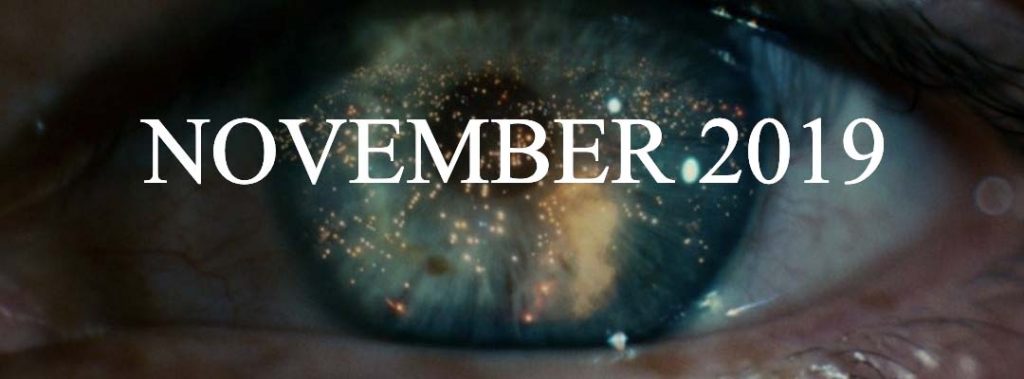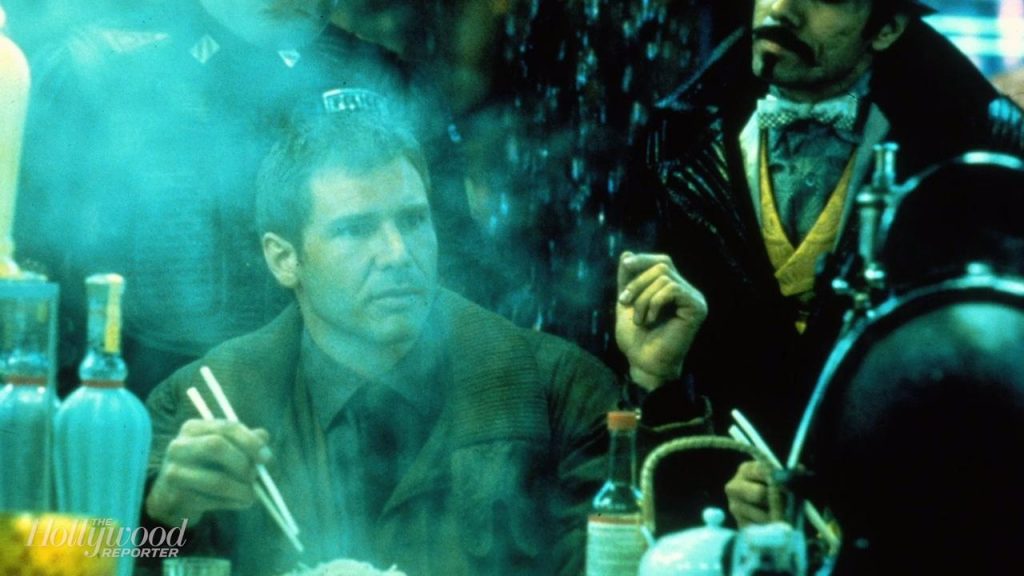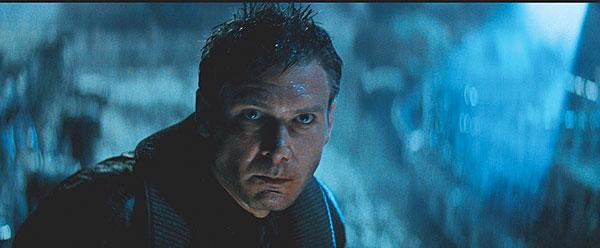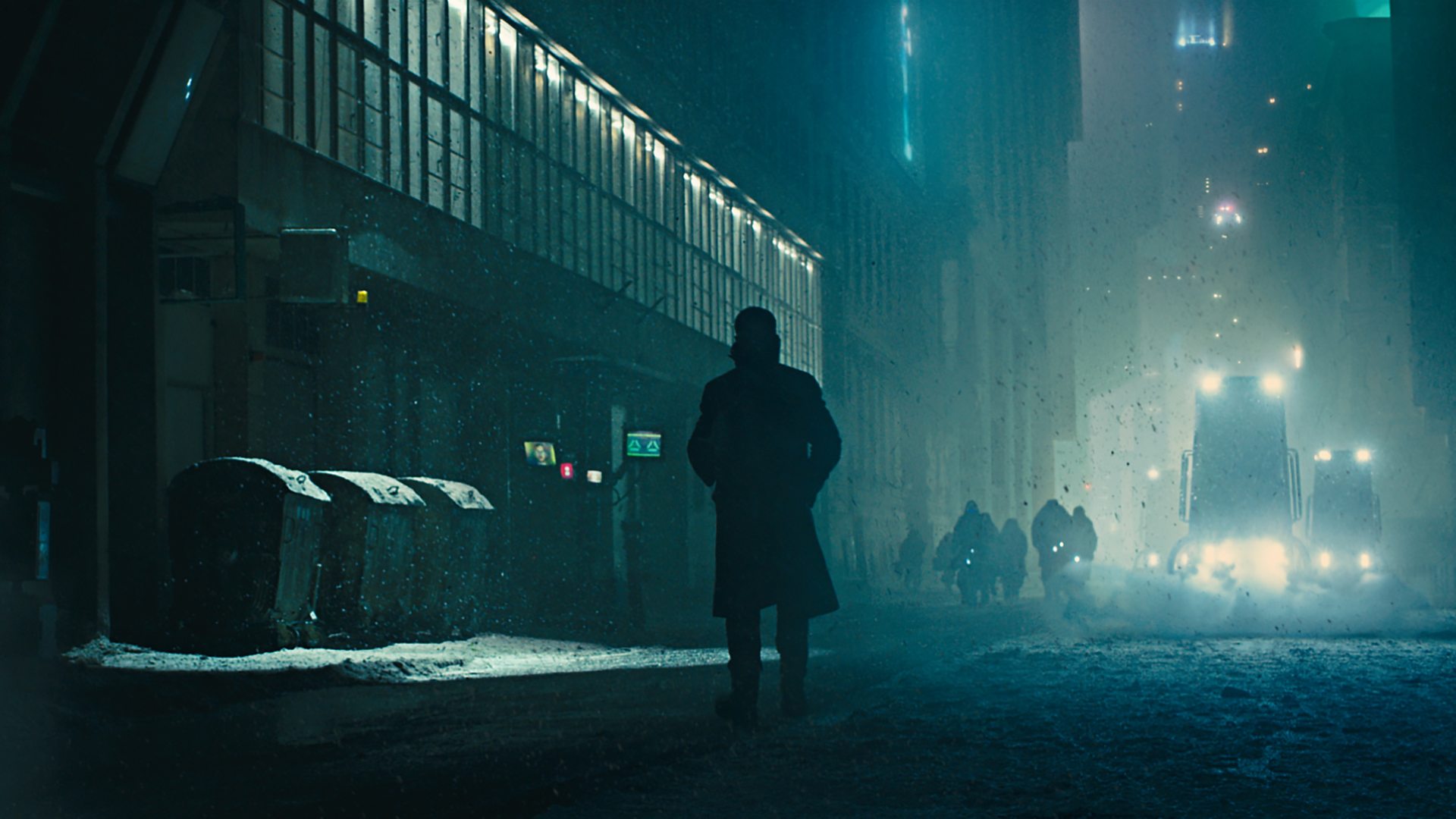Literally everyone, spontaneously, and individually, are suddenly talking about Blade Runner. Strange that, seeing as though the film was a fairly enormous disappointment when it originally released to the theaters. Nearly a 30 million dollar budget and a box office run that didn’t even match that, Blade Runner was a high concept flop for all intents and purposes. But the summer of 1982 was filled with all manner of iconic celluloid hitting the theaters. Most notably being the Wrath of Kahn and E.T. So the fact that this dark dystopian vision of a steampunk Angelino future belly flopped with movie goers isn’t too surprising.
But since then, Blade Runner has stood the test of time while E.T. and the Wrath of Kahn have not. I mean, when was the last time you sat down and watched E.T.? I literally cannot think of the last time I’ve watched it. But maybe I’m weird. Blade Runner on the other hand is an annual binge. One that is now accompanied with 2049 simultaneously as well. They are just visionary films that bring a foreboding future that seems scary and beautiful simultaneously.
And now, arriving at November 1st 2019, and anyone and everyone is spilling all kinds of magazine and web ink to talk about the film. Why? Well, because we’ve finally arrived at the future. Hallelujah! We’ve finally arrived at the month and year that the original film was set! The future is now!

But the blood of journalists and bloggers everywhere have been spent on the pursuit of the most random of conversations. Some are talking about the failure of the film to predict the future correctly. Like this piece by Wired about relativity and the current state of the technology today (“walk, walk, don’t walk, don’t walk…”). Or The Strangers’ discussion about determinism. The scattershot way in which the world is now talking about Blade Runner is just fascinating in and of itself. But why would an underrated flop of a movie cause such a dramatic stir? Basically because it is now something entirely different. Now it signifies a whole lot more to the world at large.
The Blade Runner intro but actually Los Angeles in November 2019 pic.twitter.com/KzIvgNCyWf
— Rob Beschizza (@Beschizza) November 1, 2019

The Real Blade Runner Discussion
And while it is interesting to talk about the AWOL flying taxi’s and the complete lack of life-like robots, there is a more interesting discussion to be had here. But first we have to recall what the story of Blade Runner really was all about. Personally, I saw it as a discussion about the rule of deterministic capitalistic monopolies, and the powerless few wishing to be heard. I mean, if you remember, the original movie told the story of incredibly life-like replicants that were built with a hardwired life expectancy of 4 years. And so these replicants rose up in order to search out their creative masters within the Tyrell Corporation who could then extend and elongate their artificial expiration dates.
Within this storyline we have about a gazillion things going on. We could have discussions about AI, and robots. We could have discussions about prime directives for governing artificial intelligence, as well as governing the governance of said entities once they become realized. Also, we could talk about current events about how impossible it is for us to understand how robots think – and the guidance and guardrails of allowing AI to tell us what it is thinking. (This is currently an issue – just watch the brilliant film AlphaGo, or this follow up video about allowing AI to start from scratch and learn on its own.) Or maybe we could talk about militarizing robots. Or just the state of the union of autonomous cars? There are a million things that are discussable here.
I thought the single most fundamental of conversational pieces of the movie (in my humble opinion) would be that of our own deterministic futures. If you role swap with the replicants, and put yourself in place of the robots, you’ll see that Blade Runner is actually talking about our position in relation to God. Can we overthrow Him? Is it even achievable from a scientific vantage? In that regard we are definitely well on our way from a date/timeline standpoint. We are already hearing about “scientists” in China that have begun utilizing CRISPR in order to hack human’s DNA code. We are already seeing parents selective choosing of beneficial character traits. Can anyone recall Elizabeth Holmes and her company Theranos’ hubristic fall from grace? Some of these tech startups are already calling for the end of death itself. We, and our scientific community, might as well be the Tyrell Corporation as we endeavor for the stars as we try to genetically engineer our bodies to perfection.
But maybe there is an even better discussion here about our relationship with enormous capitalistic hegemonies? Our relationship with Facebook (whose president, Mark Zuckerberg, was just dressed down on Capital Hill by AOC in an astounding cross examination.)? Blade Runner’s larger point is talking about the normal individual’s lack of power in the face of corporate omnipotence. That the average citizen is grist for the mill. And Tyrell is just a stand-in for the Facebooks, the Coca-Colas, the Apples, of this world. You know, companies that continue to get away without paying their fair share of taxes. And it is the common man that tossed by the waves of ill fortune. Because if Apple is stepping out on it’s payments of $40 billion in taxes, well then, guess what? It’s you and me that are left holding the bag for the replicant apocalypse. (Wait, what? hahahah.) No seriously, if Tyrell feels such disrespect for humans at large that it would release self-aware robots into the wild, then generally speaking, it isn’t going to be Tyrell that pays for it, but you and me.

On the Coming of the Future
Blade Runner’s future is now. And yes, we don’t have flying cars, yet. And no, we aren’t fighting a robot civil war. But maybe we have the same disdain for human life – the widow, the orphan, the impoverished – that we see blistering throughout Blade Runner. Corporate floors where workers jump off the factory buildings instead of to continue to piece together more iPhones. (Says the guy typing this commentary on an MacBook Air, flying through the sky at 30,000 feet.)
Our fear is that our fates are already determined. That we have already been actuarialy sifted and found wanting. That the years of our numbering have already been assigned by the soda companies, and fast food companies that peddle their drugs legally on the street. That our obsolescence has already been confirmed, and thank goodness for that, because 9 billion people on planet earth is more than enough already. And all we really want is a chance at an impossible immortality.
And who’s to say that we aren’t the robots anyway?
I mean, Deckard was too… wasn’t he?
POST CREDITS BONUS:
So Mike, in the comments below asked a really fantastic question, which was about which print edition is the one that everyone should watch? Or maybe he asked which one was my favorite. But the answer is complicated. Personally, those two questions have two totally different answers. If it’s your first time watching then you probably need to watch the US theatrical cut. Maybe? I mean, my son hasn’t seen it yet, and I’m screaming on the inside over this question. The pacing is slower in the other versions – but SO MUCH is added in the different cuts. Gah. If it wasn’t a cultural phenomenon that millions have already seen, I would say jump to another cut. But you will be so out of step with so many who have only ever seen the US theatrical version.
Well, regardless, you will know which one is the US Theatrical version because it’s the one with the Deckard voiceover. I mean, it’s a classic. But it has a million flaws that the studios imposed on Ridley. The ending, the backstory for Deckard was glued on. There were flaws added on to help the audience paint by numbers. So yeah, if you’ve seen the original and want to know if there is better out there – yes, there definitely is:
The Director’s Cut
The director’s cut starts out with a problem in that the Director didn’t make it. Ridley Scott supervised this edition, but it was mainly preservationist Michael Arick who assembled this cut based on Ridley’s notes. Yeah, that’s a really big caveat. BUT! Thankfully, the happy ending was thrown in the dumpster and lit on fire, where it belongs. Also, out went the voice over for idiot audiences who said Deckard lacked context otherwise. Rachel and Deckard’s happy home on a bluff crap? All gone. But the brilliance of the Director’s Cut? There is an inclusion of a single dream sequence that Deckard has of a unicorn running through the forest. That, and a scene where officer Gaff gives Deckard an origami unicorn, hints at the fact that Deckard is a replicant. This single question has been ricocheting through geek’s minds ever since, “Is Deckard a replicant?” I mean, come on. That question is the single best question – true or not – of the whole movie.
The Final Cut
This should actually be titled the “Director’s Cut” but, well, that one was already taken. So, now, Ridley figured The Final Cut is the way to go. If you are planning to watch Blade Runner and Denis’ 2049 back to back, this cut is DEFINITELY the one you should watch as it is the movie that most closely resembles the other. But the one thing that Ridley brought back was the voice over, which, to his credit, reestablishes the film as a noir detective story… which, it is.
Now, as to which one is my favorite? (There are also other cuts that I didn’t go over, like a test cut that was used for sampling purposes. But literally no one talks about that one. I have it on an external hard drive somewhere, but I’ve only seen it once, and don’t even recall the differences.) My personal, and go to favorite, is actually the Director’s Cut. I’ve watched the Final Cut a number of times, but the earth shattering enormity of the Director’s Cut will always hold a special place in my heart.
But more importantly… which cut is your personal favorite, and why?
Edited by: CY


